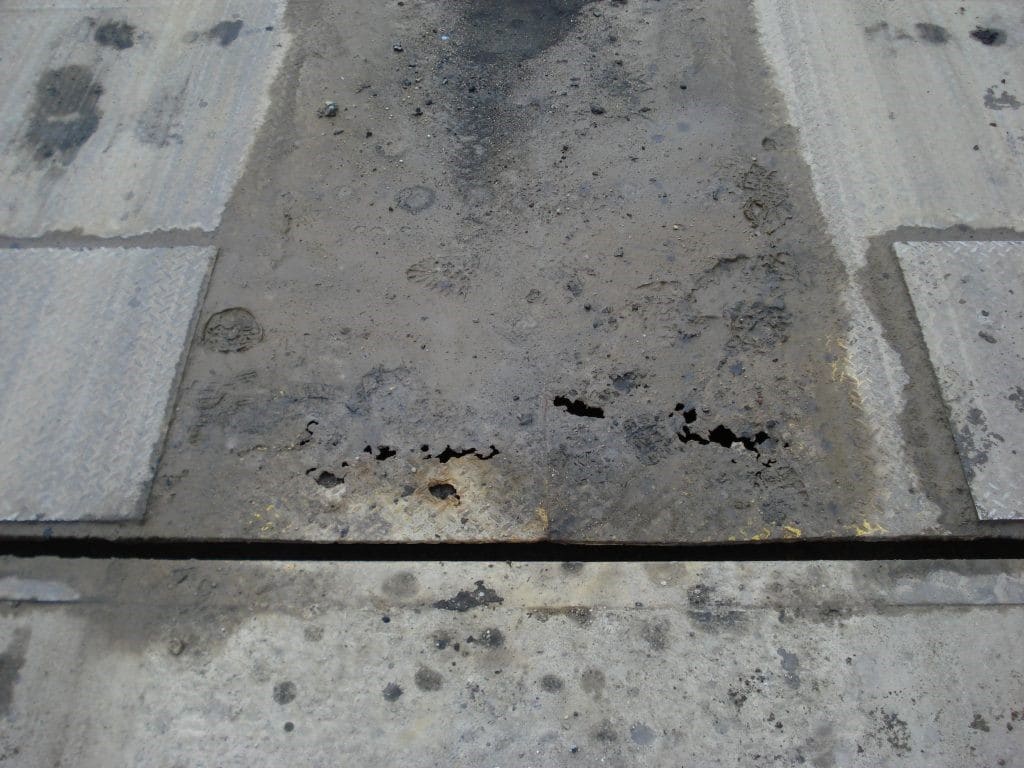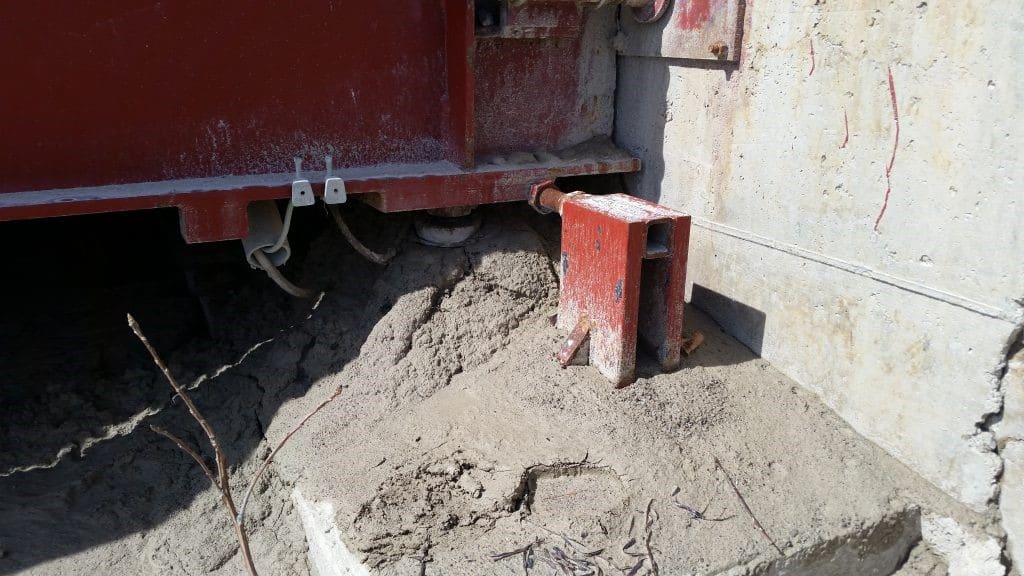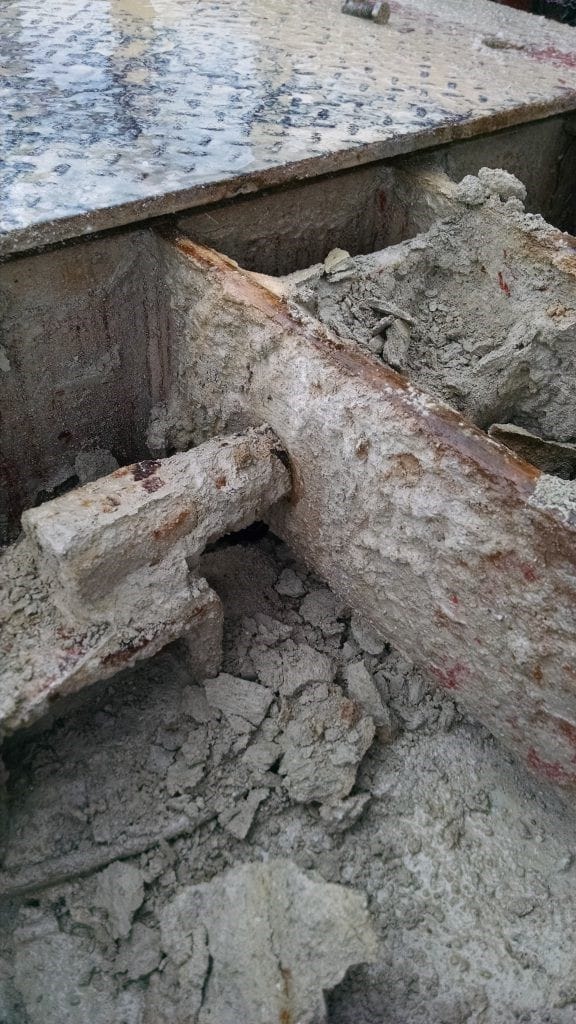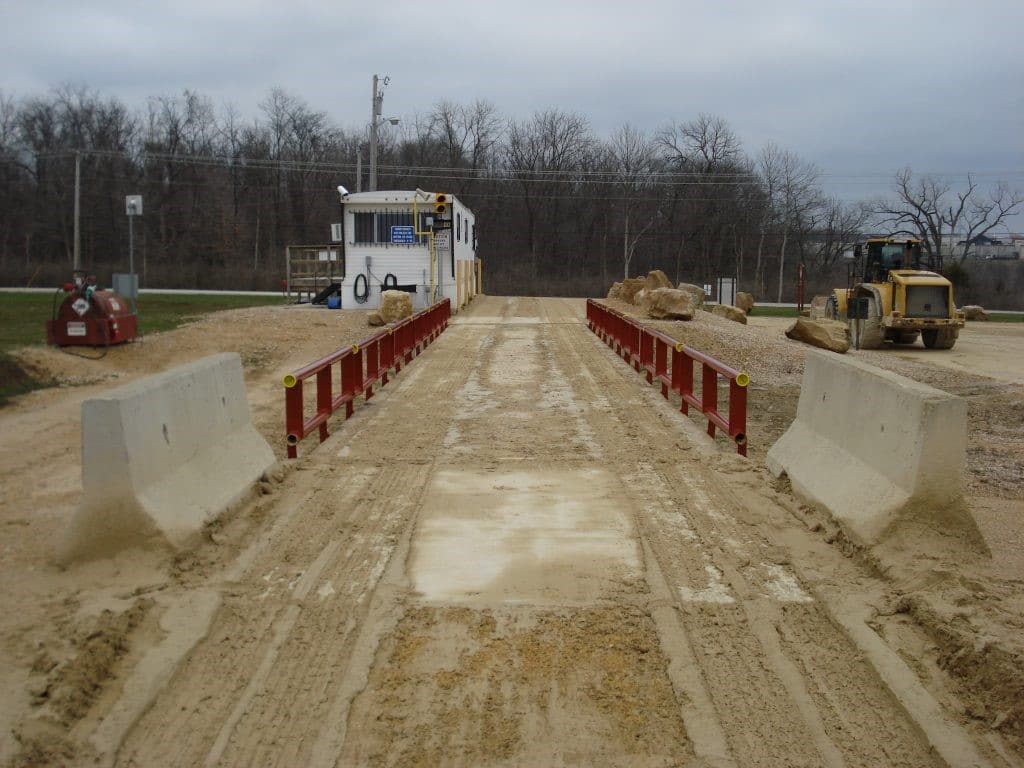The following post was provided by B-TEK Scales, our featured manufacturer this month. From load cells to truck scales, B-TEK has you covered. B-TEK’s multi-generational, highly trained staff of sales professionals, distributors and manufacturing professionals are here to assist you with all your weighing needs.
How Can a Dirty Truck Scale Cost You Money?
Keeping up with your scale maintenance is the easiest way to remain in compliance, save on maintenance costs and prevent downtime. Although it may seem easier to keep a dirty scale, it is actually much better for business and much more efficient to prevent bigger problems with a clean scale.
Here are four ways that a dirty scale can cost you money and what you can do about it.
1. Dirty scales hold in moisture.
Replacing hardware is always one of the most expensive propositions in the trucking business. If your scales are kept dry, then you avoid a great deal of the rust and corrosion that will age the equipment prematurely.
What you can do about it:
You should inspect your truck scale daily to make sure that your pit drainage system and pumps are functioning. If you have a surface mounted truck scale, you should make sure there is always a bit of clearance between the ground and the structure, especially if it is wet.
Every month, pit mounted truck scales should be checked to make sure that they are not ponding water. Twice a year, you should check for any hidden rust buildups that may be caused by water in between the moving parts of your scale.

Moisture in mud and other debris can cause a deckplate to prematurely rust.
2. Seasonal damage can occur if water and debris are allowed to build up inside of a dirty scale.
It is especially important to keep your scale clean during the early spring and late fall months. This is the time of year in which any water and debris that are left inside of your truck scale may freeze if the temperature drops suddenly at night. Frozen components can cause dysfunction between moving parts in the system when it is started up in the morning. Although the problem can start at a noncritical component, it will quickly spread to a critical component such as a load cell connector or the load cell itself.

This buildup around the load cell can cause serious issues.
What you can do about it:
Avoiding pooled water in the components of your scale will go a long way in helping to keep small debris from combining into a big problem. One of the best ways to remove debris from the tires of your truck is to invest in a drip pit. A drip pit collects debris from the tires of a truck as the truck enters the scale by functioning like a giant grate, forcing the wheels to pop ingrained rocks and other debris from the tire treads before it enters the scale.
You can also participate in a wheel wash. The wheel wash uses medium pressure water to remove debris prior to a truck entering a scale. The one downside to this measure is that you add a bit of moisture to the scale even as you reduce debris, so make sure that you account for this during and after the treatment.
Conduct a weekly check that focuses on the load cell assemblies. Find any buildup of debris or frozen water and remove it carefully, making sure not to damage the load cell cables as you clean. If you have a pit mounted truck scale, you should look for damage on the leading edge of foundations as well as down the end and side frames along the platform. If you notice that the platform has moved noticeably since you last inspected it, you should report it to the maintenance service provider.
3. A dirty scale can cause abrasion, building up pressure and shortening the life of your hardware.
The dirtier that your scale is, the more friction it will naturally create when it is used. Not only is this a good way to shorten the life of expensive hardware, but it may also affect your readings as well. Abrasion is one of the main reasons that keeping a clean scale is so important – the five minutes that you may spend cleaning and oiling in the morning will save you tens of thousands of dollars down the road.
What you can do about it:
When you have your scale washed, make sure that it is dried off and properly oiled as well. If you have time, take your scale through a test run without load so that you can listen for abrasion and note any visual components that may be working against each other.

This endwall buildup could create pressure on parts of the scale that are not designed to handle pressure and could cause failure.
4. If you have buildup of water or debris, then your scale will not weigh correctly.
At its core, keeping your scale clean is all about staying in compliance. If your scale is not weighing correctly, then you possibly face more than a bad reading for a client or maintenance that could have been avoided – you may be held legally responsible as well. As any good businessman will tell you, you can avoid legal trouble with basic scale maintenance. Outside of the trust of your customers, the money that it takes to fix legal issues is never worth it.
What you can do about it:
Have your equipment properly serviced and aggregated by a dedicated professional at least twice a year. It is especially important to do this around the early Spring and late Fall, when sudden changes in the weather have the ability to make small problems with water and debris very bad very quickly, as mentioned above.

The weight this scale measure will be thrown off by the buildup on-top of the scale.
You should definitely have your equipment tested and serviced before the start of the busy season in the Spring. However, you may be able to take advantage of discounts during the slow Winter season as well.
Keeping your scale maintenance up to snuff upgrades all of the services that you are able to provide. The Michelli Weighing & Measurement team can help.
Schedule a scale service or inspection today
Are you interested in a truck scale inspection, calibration or repair? Michelli also offers preventative maintenance service agreements to help our customers keep their scales in good working order year round. Request a quote now, or visit our Contact Us page to find your nearest Michelli location & find contact information.

